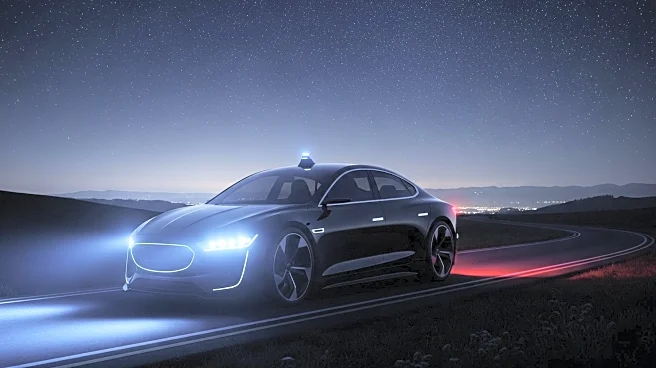What's Happening?
Tesla has filed a motion in Miami federal court to overturn a $243 million jury verdict related to a fatal crash involving its Autopilot technology. The case centers on a 22-year-old student who died after being ejected from a Tesla vehicle equipped with Autopilot features. The jury found the driver primarily responsible but also held Tesla accountable due to alleged faults in its technology. Tesla argues that the mention of CEO Elon Musk during the trial misled the jury and that the verdict could stifle innovation and harm road safety. The company is seeking a new trial or a reduction in the damages awarded.
Why It's Important?
The case is significant for the automotive industry, particularly for companies developing self-driving technologies. A precedent where manufacturers are held liable for accidents involving autonomous features could lead to increased legal risks and potentially slow down innovation in the sector. Tesla's argument highlights concerns that such verdicts might deter companies from introducing new safety technologies. The outcome of this case could influence how self-driving technology is marketed and regulated, impacting consumer trust and industry standards.
What's Next?
Tesla has requested a new trial or a reduction in the damages, and the court's decision will be closely watched by industry stakeholders. If the verdict stands, it may prompt other automakers to reconsider their approach to autonomous technology and its marketing. Additionally, regulatory bodies in the U.S. and Europe may intensify scrutiny on how self-driving features are presented to consumers, potentially leading to stricter guidelines and oversight.
Beyond the Headlines
The case raises ethical questions about the responsibility of automakers in ensuring the safety of autonomous technologies. It also highlights the potential for misleading marketing practices, as seen in the use of terms like 'Autopilot' versus 'driver assist.' The legal and cultural implications of this case could lead to broader discussions on consumer protection and corporate accountability in the tech-driven automotive industry.









